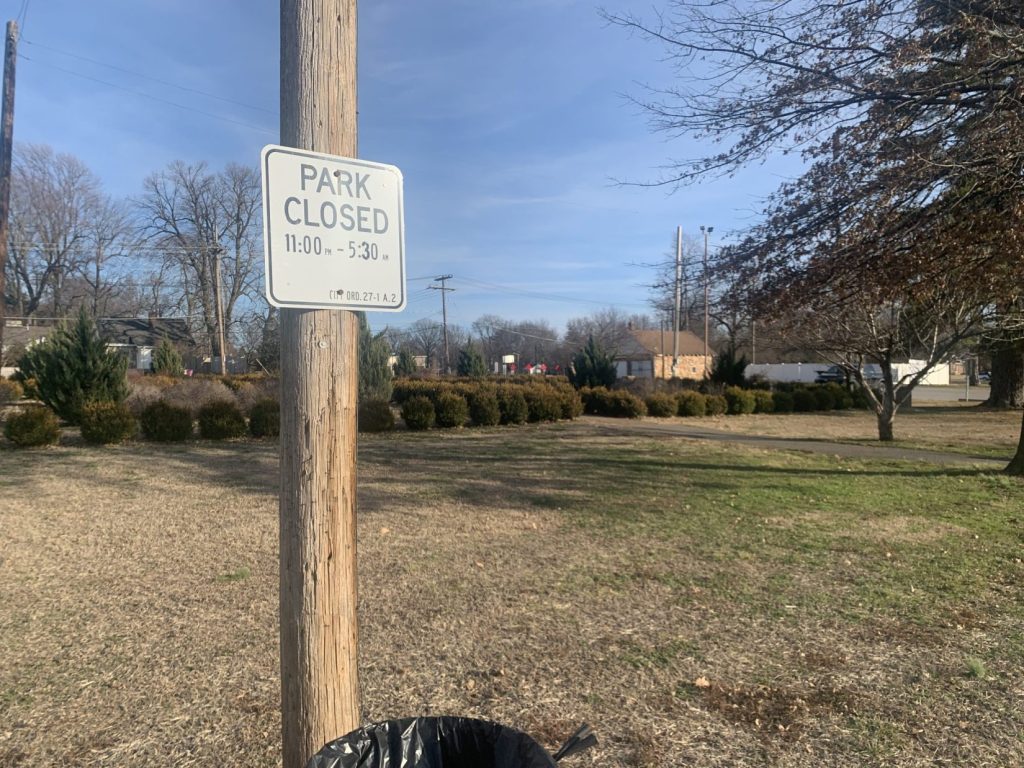The Springfield City Council postponed discussion of a bill that would've allowed the city manager to create a policy to suspend access to city property for unruly people.
Both council members and the public saw the need for a citywide policy, but were skeptical of merely allowing the manager to adopt one without seeing the specifics — concerned about the impact limiting the public's access to government might have.
Though it wasn’t anticipated to be voted on at the Nov. 6 meeting, the City Council voted 8-0 to send the bill to the Jan. 8, 2024 meeting, where a specific policy will likely be reviewed and considered by council members.
Although members of the public and the City Council supported the intentions — especially related to improving safety for city government staff — they were at odds over the potential negative implications on the public’s access to city property.
“If we’re delegating to the city manager to draft a policy, I really would like to see it,” Councilmember Abe McGull said, a sentiment reflected amongst the City Council.
What would the policy do?
The bill that the City Council considered — and ultimately postponed for later — wouldn’t have established a policy in and of itself. It would have granted the city manager power to write and adopt a policy to establish guidelines across city departments to suspend a person or group's access to public property.

“Having a policy that provides clear guidelines would be beneficial to staff, and provide transparency to the public about how and when these types of suspensions can be imposed,” City Attorney Rhonda Lewsader said.
Though no specific instances were mentioned, Lewsader said that “city staff deals with very difficult people very often.” Lewsader said people violate rules and regulations and engage in unsafe and disruptive behavior on city property.
Under existing rules — or a lack thereof — persons may be asked to leave or are suspended for a period of time, though there was no city-wide policy. Lewsader said it would be good to have an overarching and consistent policy for city government staff to follow.
“There are important legal considerations in this type of policy,” Lewsader said. “Due process concerns, constitutional rights all have to be protected and the idea is that if we have a carefully-drafted policy, then we can make sure that those kinds of rights are protected, and that the safety of our other citizens and our staff is also protected.”
The proposed bill, in the form of an amendment to the Springfield City Code, would not allow for permanent suspensions from city properties and grounds.
The proposed language to be added to the city code reads:
“Sec. 2-12. - Authority to adopt suspension of access to city facilities and land policy.
The city manager is authorized to promulgate a suspension of access to facilities and land policy in order to ensure public safety within or on city owned or operated facilities or land. Such policy shall set out procedures for temporary suspension of a person’s access to city facilities or land, for a period not to exceed one year, for unlawful, unsafe, disruptive behaviors, or violations of rules and regulations. The policy shall include but not be limited to due process provisions and procedures to ensure due process; the length of suspensions authorized for specific behaviors or violations of rules and regulations which shall be based on the degree of unlawfulness, unsafety, disruption, or violation of rules and regulations; who is authorized to issue such suspensions; factors to be used to determine the length of suspensions; and an appeal process.”
With citizens’ access to government at stake, council members want clear policy
Several council members expressed a willingness to vote in favor of an actual policy or, at the very least, grant the authority to make policy to the city manager if they had a better understanding of what exactly the policy will be.
Lewsader said that the rationale behind the bill authorizing the city manager, rather than the City Council, to establish the policy was to allow flexibility in reacting to changes in constitutional or due process law.

“In this case, the idea of having Council authorize it is really just a legal protection so that if trespass notices or something like that are issued as a result of somebody being suspended and then violating it, there’s sufficient legal basis for those tickets to be issued,” Lewsader said.
Councilmember Craig Hosmer expressed concerns about not being able to see the actual policy when considering granting the authority to the city manager, pointing to the lack of clarity around terms like “unlawful,” “unsafe” and “disruptive.”
Hosmer, an attorney and former state legislator, said that disagreeable people can sometimes exhibit “disruptive” behavior, and that people driving without license plates were breaking the law, suggesting that it shouldn’t necessarily prohibit them from accessing city property.
“I think everybody would be for making sure that our facilities are safe,” Hosmer said. “But I want to make sure that we’ve got a policy that’s also fair and also is not just put into practice because people are disagreeable.”
Lewsader said any policy adopted by the city manager would still have to conform to strict legal standards, and wouldn’t be able to restrict access to city services from people who are merely disagreeable.
Concerns for employees tasked with enforcing rules
Councilmember Brandon Jenson strongly agreed with the concept up for debate, but joined the rest of the City Council in voting against it due to its broad language and potential to impact the public’s access to the city government.
“It’s not fair to city staff or to the individual for folks to be having to make ad hoc decisions whenever it comes to these types of issues,” Jenson said. “We have seen, just since I’ve been on council, the repercussions of aggressive citizens that have harassed our staff to the point where we have seen resignations from harassment from the public and so it is important that we have these types of protections in place and we have a consistent policy both for members of the public and our staff that are employed by the city manager.”

While Councilmember Monica Horton saw the bill's ability to benefit workplace safety, especially amid a national political climate she says features “insurrectionist types of behaviors,” she worries about the uneven impact such a policy might have on disadvantaged populations.
Public reflects concerns of the City Council
Several members of the public spoke against the bill, mirroring several council members’ concerns around its broad language and not being able to review the policy itself.
Jeremy Dean said that adopting a policy was “something that we definitely should do,” but was concerned about the bill’s broad language, and recommended it be studied further in a City Council committee.
Dean suggested that the change may’ve been instigated by a dispute in Edgar Springs, Missouri, making reference to a Missouri Independent piece about the 2022 ruling that found Sunshine Law violations by the small town government.
City Manager Jason Gage later said he was unaware of that case and that efforts to establish a suspension policy in Springfield were “not related whatsoever.”
“It’s related to when an individual or individuals go out of their way to threaten, perhaps physically or otherwise, our employees to the point that our employees don’t feel safe coming into our building and being in our building,” Gage said.

Concerns for Springfieldians living on the margins
In providing her perspective as a librarian, Alice Barber said she had witnessed and was subject to harassment from the public, and understands the need for a policy. However, Barber said such a policy needs to be clear to ensure the public has an opportunity to provide input.
“At the library, we already have a policy kind of like this,” Barber said. “We have a specific conduct policy, we have rules about when people can be banned from the property and for how long and my big concern, when I saw this on the agenda, was that I didn’t see any of those kinds of things being spelled out and those specifics are so important in how we enforce suspensions when we have to do that at the library.”
Barber revisited Horton’s comments, worrying about a policy’s potential impact on people who are experiencing homelessness or are living with a mental illness or disorder.
Sarah Barnts said more guidance to the city manager to adopt a clearer policy was needed. Barnts doubts of the proposed policy's benefit to the city.
Barnts and Liz Wertz worried over a potential impact a policy could have on freedom of speech, such what could happen to a person or persons protesting on city property.
“Allowing any one person to have this much power I fear may do harm, especially as it relates to freedom of speech,” Wertz said. “As someone who does believe in the importance of peaceful and orderly conduct, I’m afraid this bill is not specific enough and would be used as a force of justification for limiting people’s ability to express their concerns.”
Gage strongly said a potential policy would not limit “law-abiding protest.”

